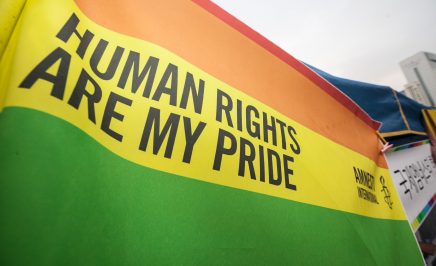Amnesty International Australia has called on the party that forms government after next Saturday’s election to protect all Australians’ human rights by enshrining them in a Federal Act of Parliament.
“Human rights should be at the heart of policy decisions no matter who holds government.”
“Human rights should be at the heart of policy decisions no matter who holds government,” Amnesty International National Director Claire Mallinson said.
“As the successful Marriage Equality plebiscite showed, Australians value protecting people’s rights in law. Now is the perfect opportunity to formalise everyone’s rights in an Act of parliament,” Amnesty International Australia National Director, Claire Mallinson, said.
While Victoria, Queensland and the ACT have human rights acts, Australia is one of the only western democratic nations that doesn’t have a federal act or a bill of rights.
The key tenets of the Human Rights Act Amnesty International proposes include:
- Ending the over-representation of Indigenous children and young people in Australia’s criminal justice system
- Working to eradicate violence against women
- Supporting the creation of safe and legal routes for people seeking asylum
- Taking a lead role around the world in abolishing use of the death penalty
- Ending the practice of gay conversion therapy and enshrine Intersex rights in law
- Ensuring Australians who have a disability have their human rights respected
- Increasing the age of criminal responsibility from 10 to the international standard of 14 years of age
- Reducing carbon emissions, phase out fossil fuels subsidies and support those whose human rights are infringed by effects of climate change
“At their core, human rights are about respecting the dignity of everyone.Someone’s quality of life should not be determined by factors beyond their control – be it race, nationality, gender, socio-economic background, sexuality or age,” Mallinson said.
“The work of government is central to whether and how these rights are expressed, or limited.”





